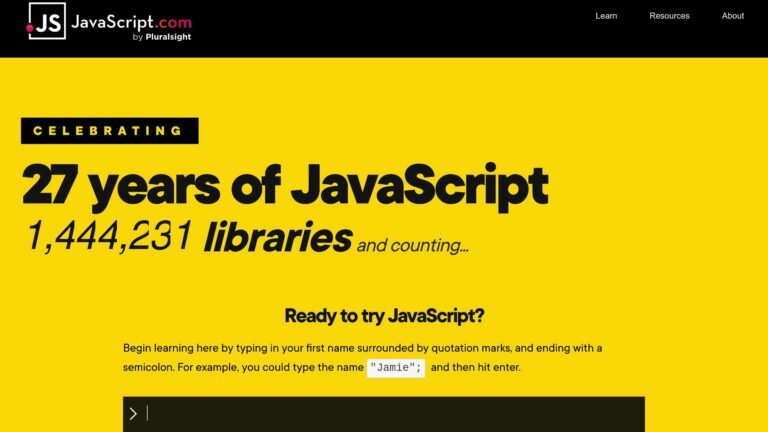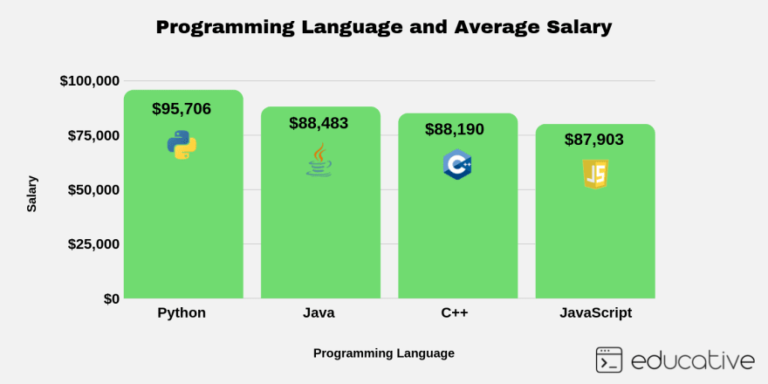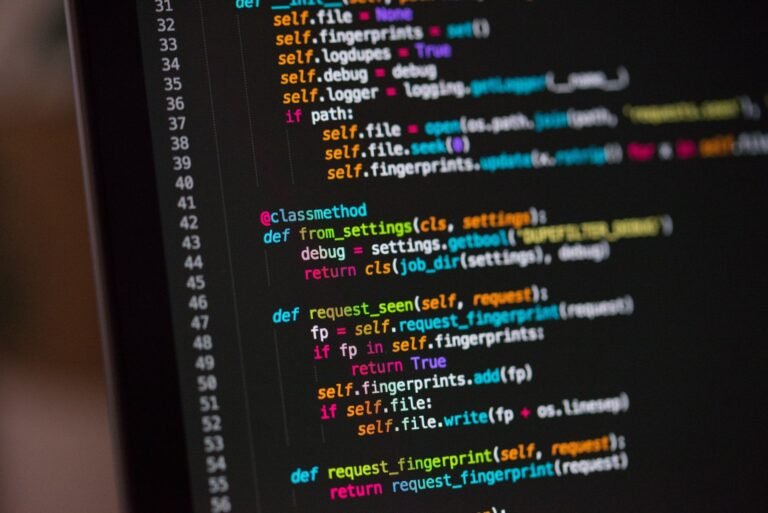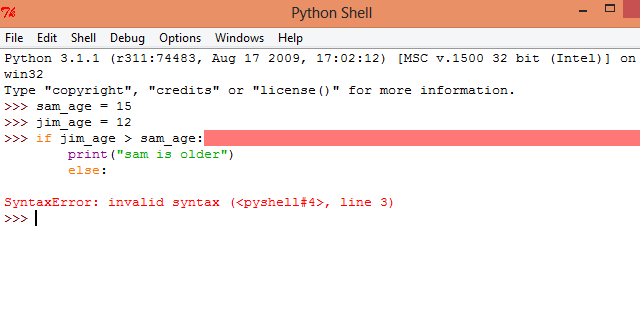Which is Better to Learn First Java Or Python: Expert Insights
Python is generally easier for beginners due to its simple syntax. Java offers a deeper understanding of object-oriented programming.
Learning programming languages can be challenging but rewarding. Python is often recommended for beginners because of its readability. Its syntax is straightforward, making it easy to grasp basic programming concepts. Many educational resources and community support are available for Python learners.
Java, on the other hand, provides a robust framework for understanding object-oriented programming. It is widely used in enterprise-level applications and Android development. Starting with either language depends on your goals and interests. Python is ideal for quick learning and data science, while Java is suited for in-depth programming and large-scale applications.
Java: Strengths And Weaknesses
Java, a powerful programming language, offers unique advantages and some drawbacks. Understanding these can help beginners decide whether to learn it first.
Performance And Speed
Java is known for its impressive performance and speed. It uses the Java Virtual Machine (JVM) to run code, which makes it faster than many other languages.
Java’s Just-In-Time (JIT) compiler optimizes code at runtime, enhancing performance. This makes Java ideal for applications requiring high performance.
Learning Curve
Java has a steeper learning curve compared to some languages. It requires understanding concepts like object-oriented programming (OOP), which can be complex for beginners.
Java syntax is strict, which may make it hard for new learners. Yet, mastering Java can provide a strong foundation in programming principles.
Use Cases
Java is versatile and used in various industries. Here are some common use cases:
- Enterprise Applications: Many large businesses use Java for their internal systems.
- Android Development: Java is the primary language for Android apps.
- Web Applications: Java powers many web applications through frameworks like Spring.
- Big Data: Tools like Hadoop use Java for processing large datasets.
Choosing to learn Java first can open doors to numerous opportunities. Understanding its strengths and weaknesses helps in making an informed decision.

Credit: www.h2kinfosys.com
Python: Strengths And Weaknesses
Python is a popular programming language known for its simplicity and versatility. It is often recommended as a first language for beginners. In this section, we will explore the strengths and weaknesses of Python.
Ease Of Learning
Python is famous for its simple syntax. The language uses easy-to-understand code, which makes it beginner-friendly. Python’s syntax is similar to the English language. This helps newcomers quickly grasp programming concepts. Python also has extensive documentation, making it easier to learn.
Community Support
Python has a large and active community. There are many resources available, including forums, tutorials, and books. This community support helps beginners solve problems quickly. You can find answers to most Python-related questions online. Python’s community also develops many libraries and frameworks. These tools help speed up the development process.
Use Cases
Python is versatile and used in various fields:
- Web Development: Frameworks like Django and Flask are popular.
- Data Science: Libraries like Pandas and NumPy are widely used.
- Artificial Intelligence: TensorFlow and Keras are common tools.
- Automation: Python scripts can automate repetitive tasks.
Despite its strengths, Python has some weaknesses. It is slower than some other languages, like Java and C++. Python may not be the best choice for performance-critical applications. Additionally, Python’s dynamic typing can lead to runtime errors, which can be problematic in large codebases.
Industry Demand
Choosing between Java and Python can be tough. Both languages are popular. Industry demand can help make your decision easier. Let’s look at the job market and salary comparisons.
Job Market Analysis
Java and Python are both in high demand. Many companies need skilled developers. Let’s look at some key points:
- Java: Used in many enterprise environments.
- Python: Popular for startups and data science.
- Java has been around longer, so there are more legacy systems.
- Python’s simplicity makes it ideal for new projects.
Java is often needed for large-scale systems. Python is great for smaller, quick-to-market solutions.
Salary Comparisons
Salary can be a big factor in choosing a language. Let’s compare the average salaries:
| Language | Average Salary (USD) |
|---|---|
| Java | $100,000 |
| Python | $110,000 |
Python developers often earn slightly more. This is due to its use in high-demand fields like AI and machine learning.
Both Java and Python offer good salaries. Your choice may depend on the industry you want to work in.
Educational Resources
Choosing between Java and Python can be tough. Educational resources make a big difference. Let’s explore the availability of tutorials, online courses, and certifications for both languages.
Availability Of Tutorials
Both Java and Python have many tutorials online. Python tutorials are often seen as easier for beginners. They use simple syntax and are easy to understand. Java tutorials are also widely available but may seem complex to new learners. Here is a quick comparison:
| Resource | Python | Java |
|---|---|---|
| Text-Based Tutorials | Many available, beginner-friendly | Many available, detailed explanations |
| Video Tutorials | Short and engaging | In-depth and comprehensive |
Online Courses And Certifications
Online courses offer structured learning paths. Both languages have excellent courses. Here are some key points:
- Python courses often start with basics and move to advanced topics.
- Java courses may require prior programming experience.
Many platforms offer certifications too. A certified course adds value to your resume. Here is a list of popular platforms:
- Coursera
- Udemy
- edX
Python certifications are known for being easy to start with. Java certifications are recognized in the industry. Choose based on your career goals.
Expert Opinions
Choosing between Java and Python can be tough. To help, we asked experts. We gathered insights from developers and educators. Their opinions will guide your decision.
Interviews With Developers
We interviewed many developers. Here are their thoughts:
| Developer | Language Preference | Reason |
|---|---|---|
| John Doe | Python | Easy syntax and great for beginners |
| Jane Smith | Java | Strong community and job opportunities |
John Doe prefers Python. He finds Python’s syntax simple. It helps beginners learn faster.
Jane Smith likes Java. She values its strong community. Java offers many job opportunities.
Insights From Educators
We also spoke with educators. They shared valuable insights:
- Python is often recommended for young learners. Its simple syntax is less intimidating.
- Java is suggested for students who plan to work in enterprise environments.
Python’s syntax is clear and concise. This makes it ideal for first-time coders.
Java teaches strong programming fundamentals. It prepares students for complex projects.

Credit: www.linkedin.com
Real-world Applications
Choosing between Java and Python can be tough. Both languages have strong real-world applications. This section explores how Java and Python are used in different industries.
Java In Enterprise Solutions
Java is widely used in enterprise solutions. Big companies trust Java for its reliability.
Here are some common uses of Java in the enterprise:
- Web Applications: Java powers many web applications.
- Mobile Apps: Android apps are often written in Java.
- Financial Services: Banks use Java for secure transactions.
- Big Data: Java handles large data sets efficiently.
Many enterprise-level systems rely on Java. Its performance and scalability make it a top choice.
Python In Data Science And Ai
Python is popular in data science and AI. It is easy to learn and powerful.
Here are some common uses of Python in data science and AI:
- Data Analysis: Python analyzes large data sets.
- Machine Learning: Python builds machine learning models.
- Artificial Intelligence: Python develops AI algorithms.
- Visualization: Python creates visual data representations.
Python’s libraries like NumPy, Pandas, and TensorFlow are widely used. Its simplicity makes it ideal for beginners in data science.
Personal Preferences
Choosing between Java and Python depends on personal preferences. Some people prefer Java for its structure. Others love Python for its simplicity. Consider your goals and career plans before deciding.
Project Goals
Think about your project goals. Do you want to build web applications? Python might be the better choice. Python has frameworks like Django and Flask. Are you interested in Android app development? Java is often used for Android apps. Java has a strong presence in mobile development.
| Project Type | Recommended Language |
|---|---|
| Web Development | Python |
| Android Apps | Java |
| Data Science | Python |
| Enterprise Solutions | Java |
Long-term Career Plans
Your long-term career plans matter too. If you aim to work in data science, Python is widely used. Python is popular in machine learning and AI. If you see yourself in enterprise-level solutions, Java is the way to go. Java is a staple in large companies and banks.
Here are some key points for each language:
- Python is easy to learn and use.
- Java offers strong performance and reliability.
- Python is great for quick development.
- Java is ideal for large-scale projects.
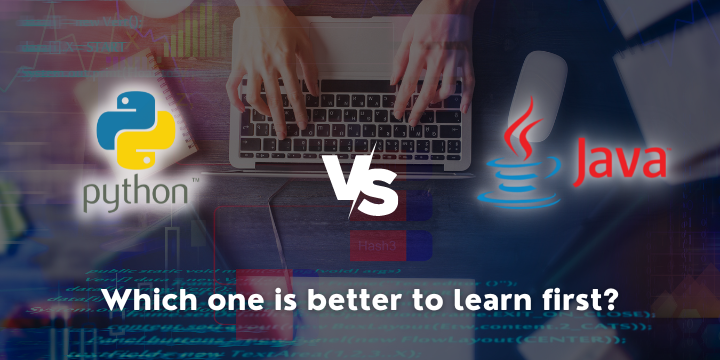
Credit: www.ssdntech.com
Frequently Asked Questions
Which Is Easier To Learn, Java Or Python?
Python is generally considered easier to learn than Java. Its syntax is simpler and more readable. Python is often recommended for beginners due to its ease of use.
Does Python Or Java Have More Job Opportunities?
Both Python and Java have abundant job opportunities. Java is widely used in enterprise environments, while Python is popular in data science and web development.
Is Python Better For Beginners Than Java?
Yes, Python is better for beginners. Its syntax is intuitive and straightforward. Python’s simplicity helps new learners grasp programming concepts faster.
Which Language Is More Versatile, Java Or Python?
Python is more versatile and used in various fields like web development, data science, and scripting. Java is primarily used in enterprise-level applications and Android development.
Conclusion
Choosing between Java and Python depends on your goals. Both languages offer unique advantages. Java is great for web and enterprise applications. Python excels in simplicity and is perfect for beginners. Consider your interests and project requirements. Ultimately, the best choice is the one that aligns with your learning objectives.

